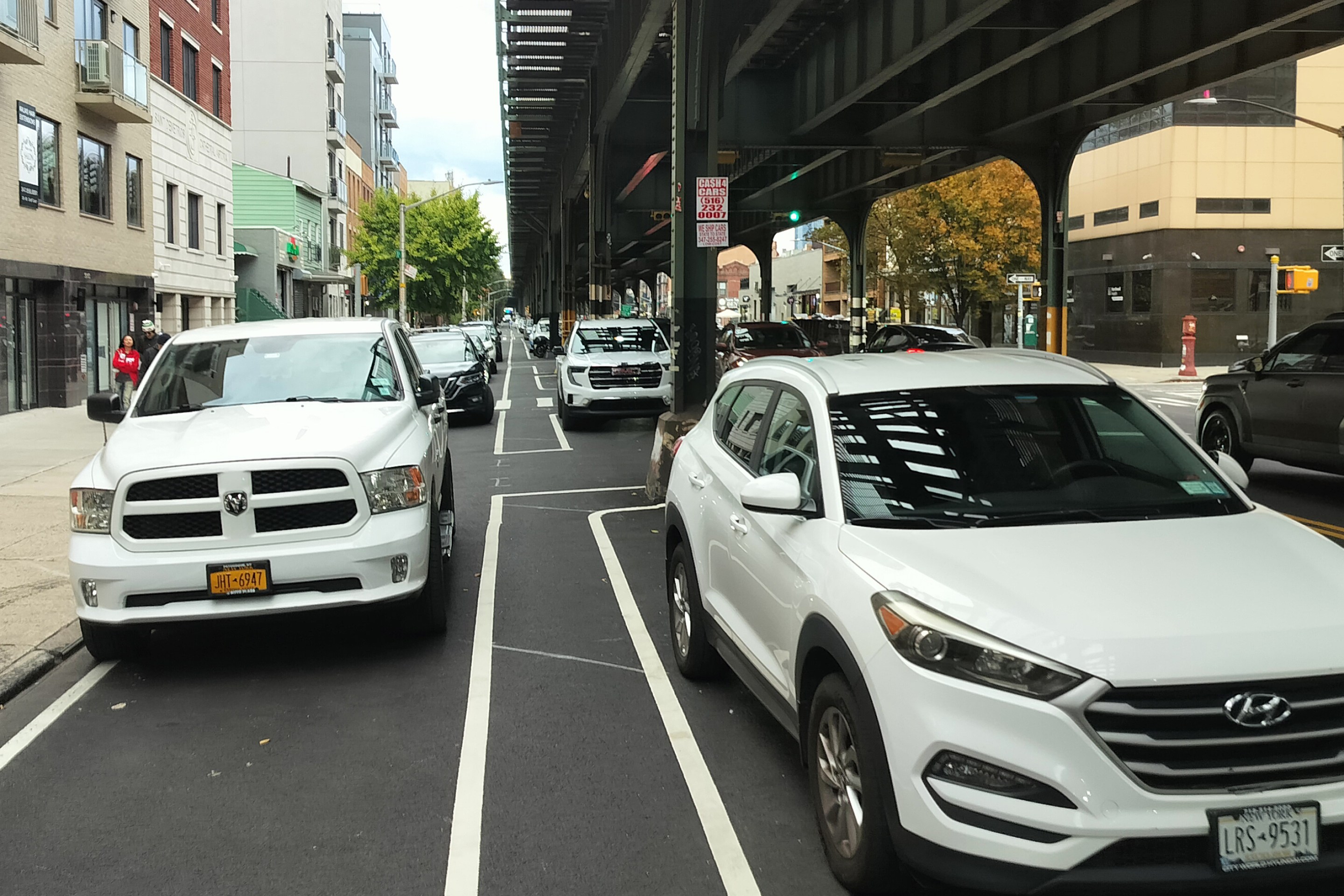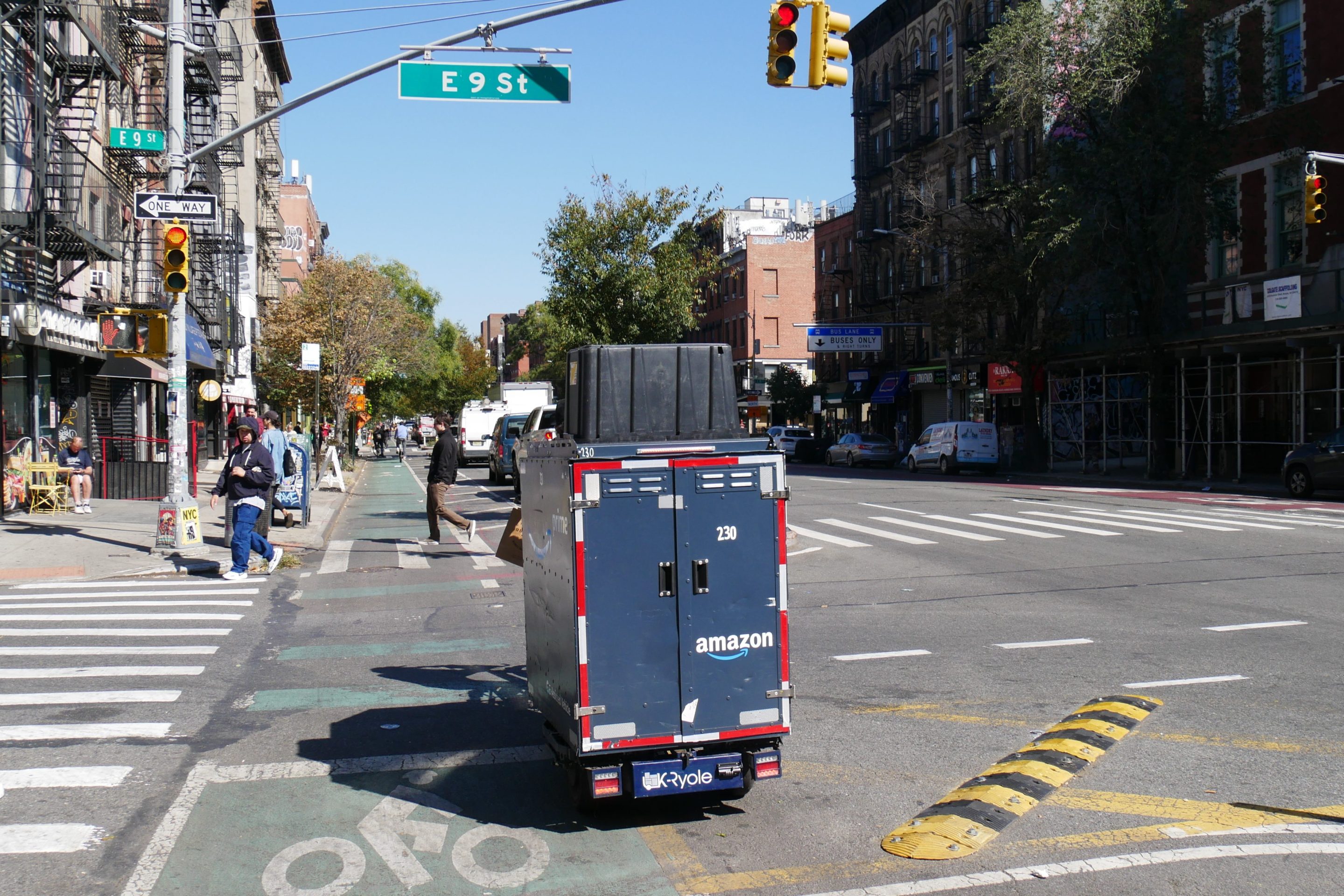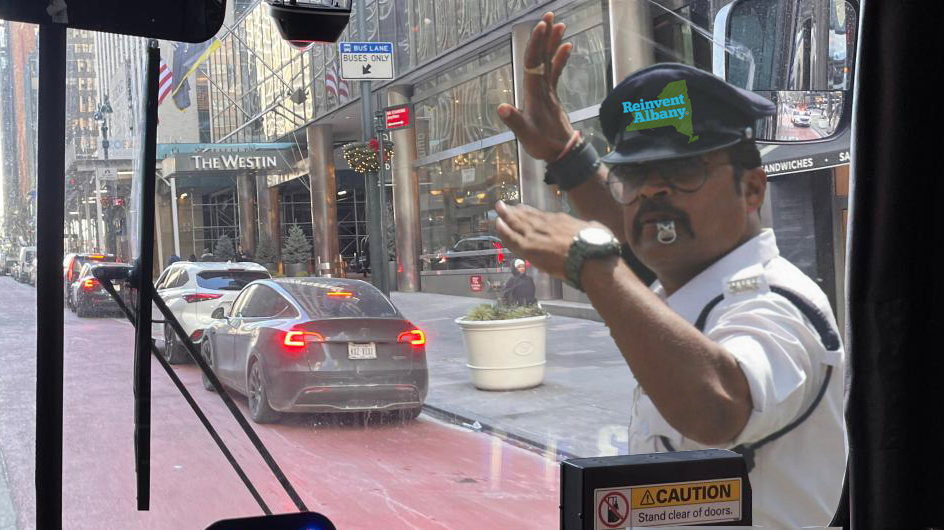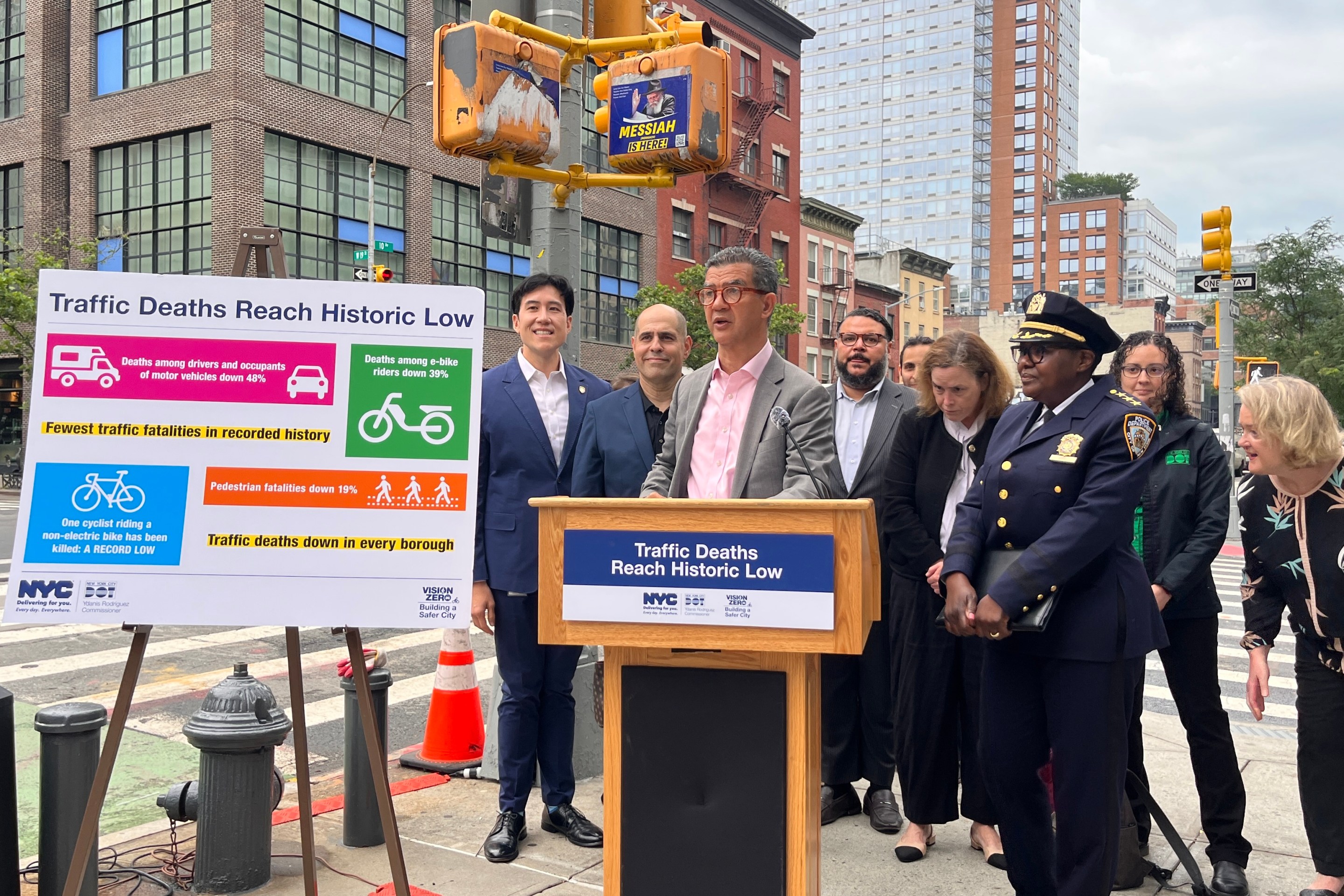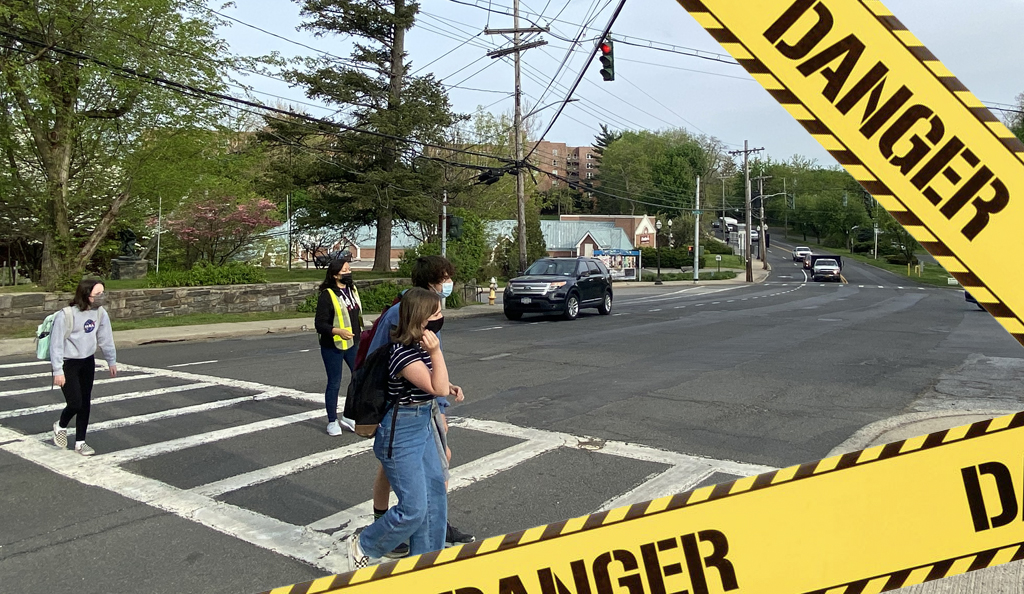The office of Manhattan District Attorney Cy Vance scored a significant victory last week, earning a homicide conviction in the case of a driver who killed a pedestrian in East Harlem nine years ago. But the circumstances of the crash, and their striking similarity to a 2011 fatality that resulted in a slap-on-the-wrist plea bargain, raise questions about how city prosecutors handle most pedestrian deaths.
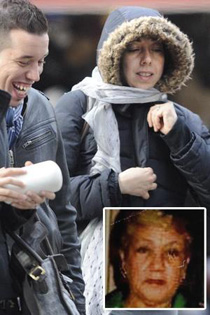
On January 2, 2003, 82-year-old Francesca Maytin was crossing Third Avenue between East 107th and East 108th streets when Lynette Caban backed her Jeep Cherokee into the intersection, striking Maytin hard enough to throw her a distance of over 18 feet, according to a Vance press release. Caban, now 39, was driving with a suspended license at the time of the collision, and had received four summonses for "similar conduct" in the three months prior. She also had a plastic bag taped over the right rear window of her vehicle, which obstructed her view. On January 13, Caban was convicted of criminally negligent homicide. She is scheduled to be sentenced in March. (The Post reports that Caban may not face jail beyond time served, and says she continues to drive using a different name.)
The Caban case was brought by Vance's predecessor, Robert Morgenthau, and concluded only after the Court of Appeals ruled in 2010 that driving with a suspended license can be used as evidence of criminal negligence. That decision was another big win, and was hailed by Vance as "a significant step in holding drivers accountable for dangerous and unsafe operation of a vehicle." Which makes the case of Edwin Carrasco all the more puzzling.
On June 30 of last year, Yolanda Casal, 78, and her 41-year-old daughter Anais Emmanuel were crossing Amsterdam Avenue near West 98th Street when Carrasco, 38, backed into them with his Ford Explorer. Casal was killed, Emmanuel hospitalized. Like Lynette Caban, Carrasco was driving with a suspended license. Vance did not charge Carrasco for killing Casal or injuring Emmanuel, though Carrasco was reportedly breaking at least two laws at the time of the crash. According to the online database of the New York State Unified Court System, Carrasco pled guilty to a top charge of aggravated unlicensed operation of a motor vehicle in the third degree, a misdemeanor stipulating that he drove without a license when he knew or should have known that he didn’t have one. Carrasco's penalty: a $500 fine.
It was reported that Carrasco, like Caban, had a history of license suspensions and recklessness behind the wheel. It's unknown whether the specifics of his record were considered in the decision not to prosecute for causing death and injury. Nor do we know if the Court of Appeals ruling -- which distinguished between license suspensions for dangerous driving and, for instance, unpaid parking tickets -- was a factor. We asked Vance's office for insight into the differences between the two cases, but a spokesperson would say only that each case is decided on its own merits, and declined to elaborate.
So, as often happens when it comes to matters of traffic justice, the public is left to speculate. It is baffling that the nearly identical details surrounding the deaths of Francesca Maytin and Yolanda Casal could bring such disparate outcomes for their respective killers. It also seems the conviction of Lynette Caban shows that prosecutors can be successful with the type of case that the city's district attorneys, including Cy Vance, are not otherwise pursuing.
